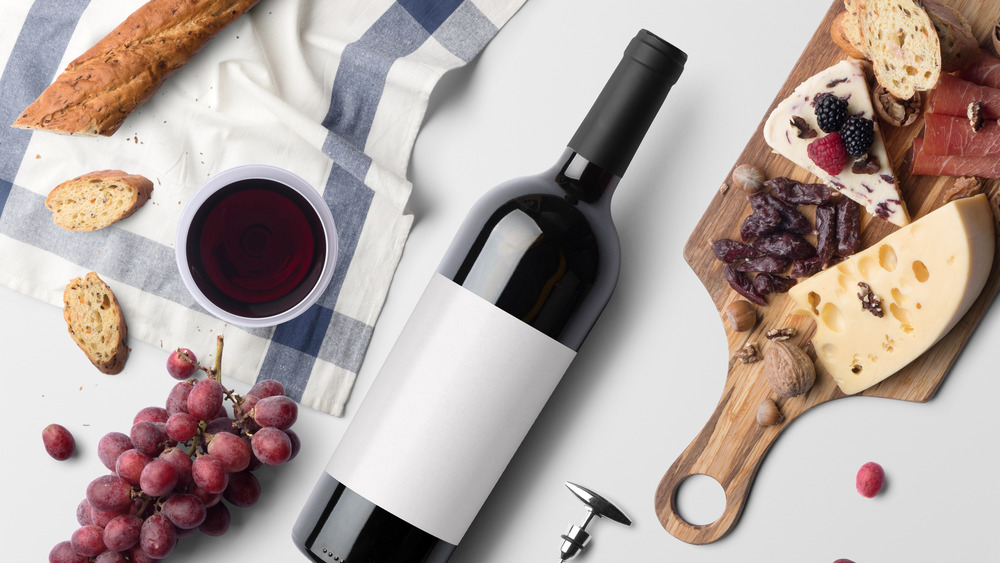Why Wine And Cheese Might Be Good For Your Brain's Health
Don't write 2020 off just yet; there may be some good news to come out of this year after all! A study out of Iowa State University, published in the November 2020 Journal of Alzheimer's Disease, indicates that certain foods — like cheese — may protect against cognitive decline later in life, while others — like lamb and alcohol — may even improve cognitive function (via Food and Wine). If that sounds like something you want printed on a tea towel for your kitchen, read on.
According to Science Daily, the study was the first-of-its-kind, large scale analysis, which produced evidence that the foods we eat have a direct connection to our cognitive abilities in later years. Data from over 1,500 adults, aged 46 to 77 years, was collected through the UK BioBank, and analyzed by principal investigator Auriel Willette, an assistant professor in the Food Science and Human Nutrition department at ISU, and Brandon Klinedinst, a Neuroscience PhD candidate working in the same department. The study began in 2006, when participants were given a questionnaire designed to measure their ability to "think on the fly," along with questions about their food and alcohol consumption. Participants were then reassessed in 2012 and 2015.
The connection between food and cognitive abilities
Among the significant findings of the study, Willette and Klinedinst found that daily consumption of alcohol, particularly red wine, was related to improvements in cognitive function, and that cheese was "by far" shown to be the most protective food against the cognitive deterioration that comes with age. Don't go chugging and cheesing just yet, though; while studies have shown that low doses of alcohol can be beneficial, scientists are quick to point out that heavy alcohol consumption for prolonged periods is still a health hazard, and can even increase your risk of dementia (via Nature).
Perhaps the study's biggest takeaway is the strong connection between what you eat and your cognitive acuity as you age. Willette points out that clinical trials are needed to determine what dietary changes might be beneficial; but, she says, "I was pleasantly surprised that our results suggest that responsibly eating cheese and drinking red wine daily are not just good for helping us cope with our current COVID-19 pandemic, but perhaps also dealing with an increasingly complex world that never seems to slow down." Her colleague, Klinedinst, adds: "I believe the right food choices can prevent [Alzheimer's Disease] and cognitive decline altogether." We'll drink to that.

